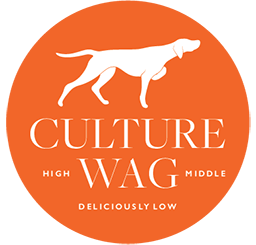Margaret Atwood Gets Poetic in the Week's Best Reads
Dear Comrades in Books,
This week, CultureWag touched on a bookstore controversy. I take assaults on booksellers personally. Algorithms feed us mind-warping candy. Great shops such as Diesel, in L.A.’s Brentwood Country Mart, curate interesting and occasionally provocative titles. Picking them isn’t programming, but an imperfect human art.
If book retailers mimicked social media, shamelessly pandering to the demographics of their communities, they’d be soulless. The best ones are earthy and unpredictable. In such venues, you may run across something discomfiting—even infuriating. Hate a controversial title? Don’t buy it. You’ll have plenty of company. Calling for its removal is censorship.
When my husband was in the service back in the ’90s, the only place I could shop for books was at the local military exchange. The closest bookstore was at least an hour away from where we were stationed in Texas. As a new mother, I could barely pull it together to get to the on-post library, let alone drive that distance with an infant.
The shelves of the exchange were full of military histories, recipe books, and a vast number of Christian-themed titles. I’d head to the place desperate for new literary fiction, and be confronted with another fundamentalist tract ordering me to submit to my husband. Sometimes, it made me want to scream.
I didn’t. Instead, I would push my daughter’s stroller past my pain points and find her a picture book. It never occurred to demand an offending book be yanked because I disagreed with it. Books (among other things) can be upsetting. But what a bland world it would be if we walked into bookstores knowing that nothing in them would challenge us. Our feelings would be spared. And we’d never learn anything new.
While we’re on the subject, I hope you’ll consider listening to my brand-new podcast, The Book Maven: A Literary Revue. It launches this Friday, October 11th, and new episodes will go up for eight weeks after that. Tune in wherever you get your podcasts, or here on Substack!
Yours ever,
BKP
Women’s Hotel by Daniel Lavery
Hotels for single women flourished in the first half of the 20th century. Places such as New York City’s Martha Washington and Barbizon hotels made it possible for residents to enter the workforce when living alone was taboo. By the ’60s, such havens were on the way out, but they still beckoned to women with big dreams. Lavery’s novel takes place in the fictional Biedermeier, where a plan to eliminate breakfast motivates residents and staff to fight for their unlikely home. It’s a slender plot, but characters who include an extortionist elevator operator, a lesbian barkeep, and a rebellious journalist, make for fun company. You’ll wish you’d checked into the Biedermeier, too.
Our Evenings by Alan Hollinghurst
Hollinghurst has written many superb books about gay Britain (The Swimming-Pool Library, The Line of Beauty). The latest novel is his best. David Win, half-English, half-Burmese, survived boarding school, no thanks to Giles, the son of the man who paid for his education. Now both men are in middle age—David is an actor, and his old bully is an outspoken Brexiteer. This first part of the novel is an elegiac look at youth, while the second is a brisk journey through David’s relationships. A shocking finale ties it all together and is a reminder that none of us can escape the past.
Paper Boat by Margaret Atwood
It’s been overshadowed by her bestselling fiction, but the 84-year-old Canadian national treasure is a magnificent poet. This collection covers output from 1961 through 2023, and like Atwood, it’s full of surprises. The snake hunts and sinews/his way along and is not his own/idea of viciousness—a line from the poem “Orpheus”—is just one example of how a virtuoso connects human behavior to the natural world. She has a canny way of investing meaning in a universe of ordinary things.
Slaveroad by John Edgar Wideman
In this experimental novel, Wideman examines slavery’s legacy across several generations. To explore his sprawling topic, the acclaimed author tries all sorts of literary tricks—stream of consciousness, neologisms, creative punctuation, and more. That may throw readers, but hang in there. An ambitious plot connects Wideman’s contemporary family, Rebecca, an enslaved woman from the Congo, and William Henry Sheppard, a Black missionary to Africa in 1890. The links between these disparate figures make a bigger point about the endless quest for freedom.
The Puzzle Box by Danielle Trussoni
Trussoni has been a horror fiction star since 2010’s Angelology. This follow-up to 2023’s The Puzzle Master makes clear she’s bigger than any genre. Mike Brink, the titular hero of Trussoni’s last book, is hired by the Japanese imperial family to untangle a fiendish 19th-century contraption. To do it, he must contend with a group of female samurai and a dead tech billionaire whose consciousness is being kept alive digitally. Brink’s extraordinary problem-solving powers are derived from a traumatic brain injury, which makes him a vulnerable but brilliant leading man. Can’t wait for the movie.
The only difference between the saint and the Wag is that every saint has a past, and every Wag has a future.—Oscar Wilde
Questions and suggestions for our book supplement? Ping intern@culturewag.com, and we’ll get back to you in a jiffy. CultureWag celebrates culture—high, medium, and deliciously low. It’s an essential guide to the mediaverse, cutting through a cluttered landscape and serving up smart, funny recommendations to the most hooked-in audience in the galaxy. If somebody forwarded you this issue, consider it a coveted invitation and RSVP “Subscribe.” You’ll be part of the smartest set in Hollywood, Gstaad, Biarritz, and the Atlas Bar in Singapore, serving over 1,300 gins in an Art Deco temple.
Bow before the mighty tower of gin (Photo: Atlas Bar).









